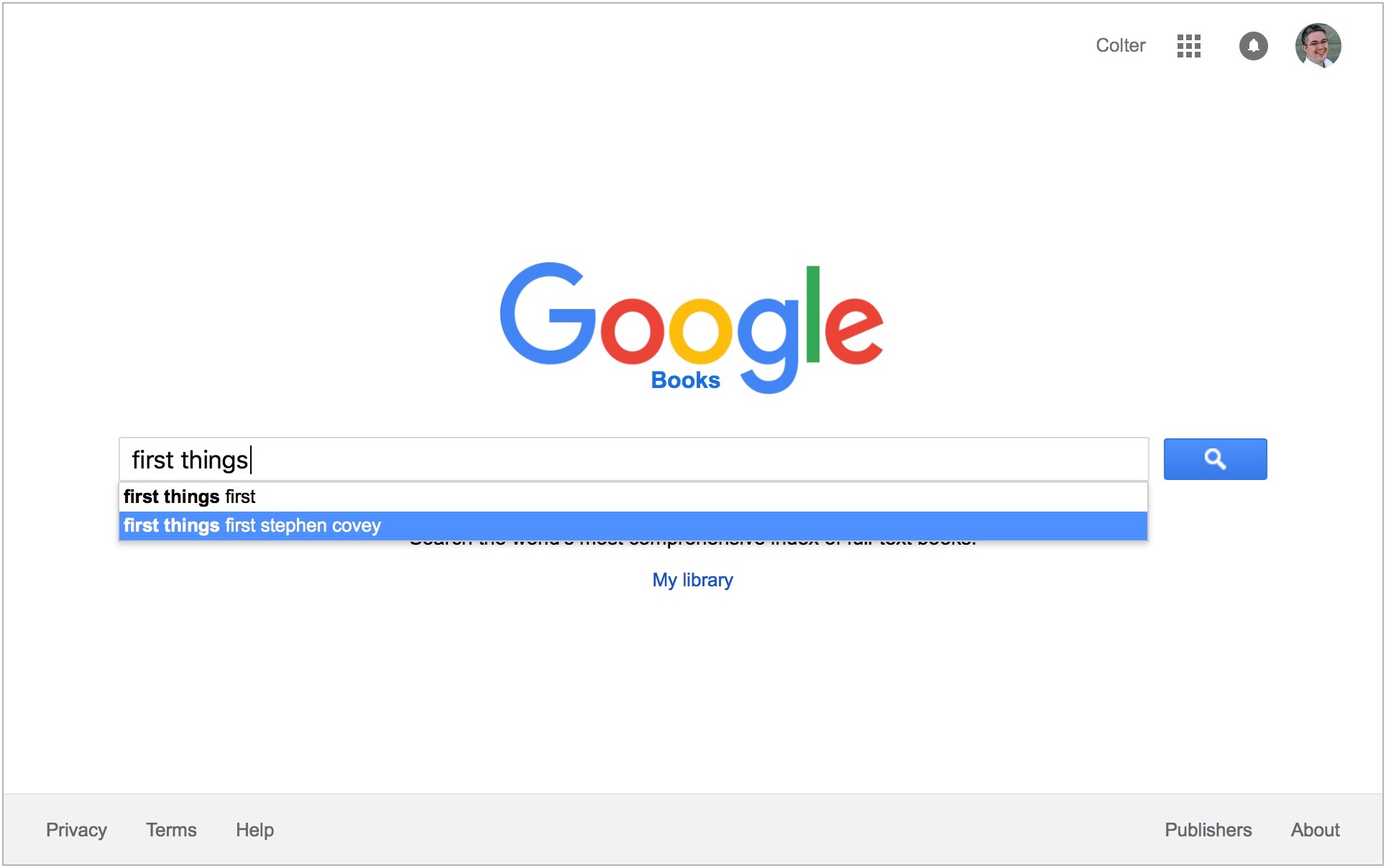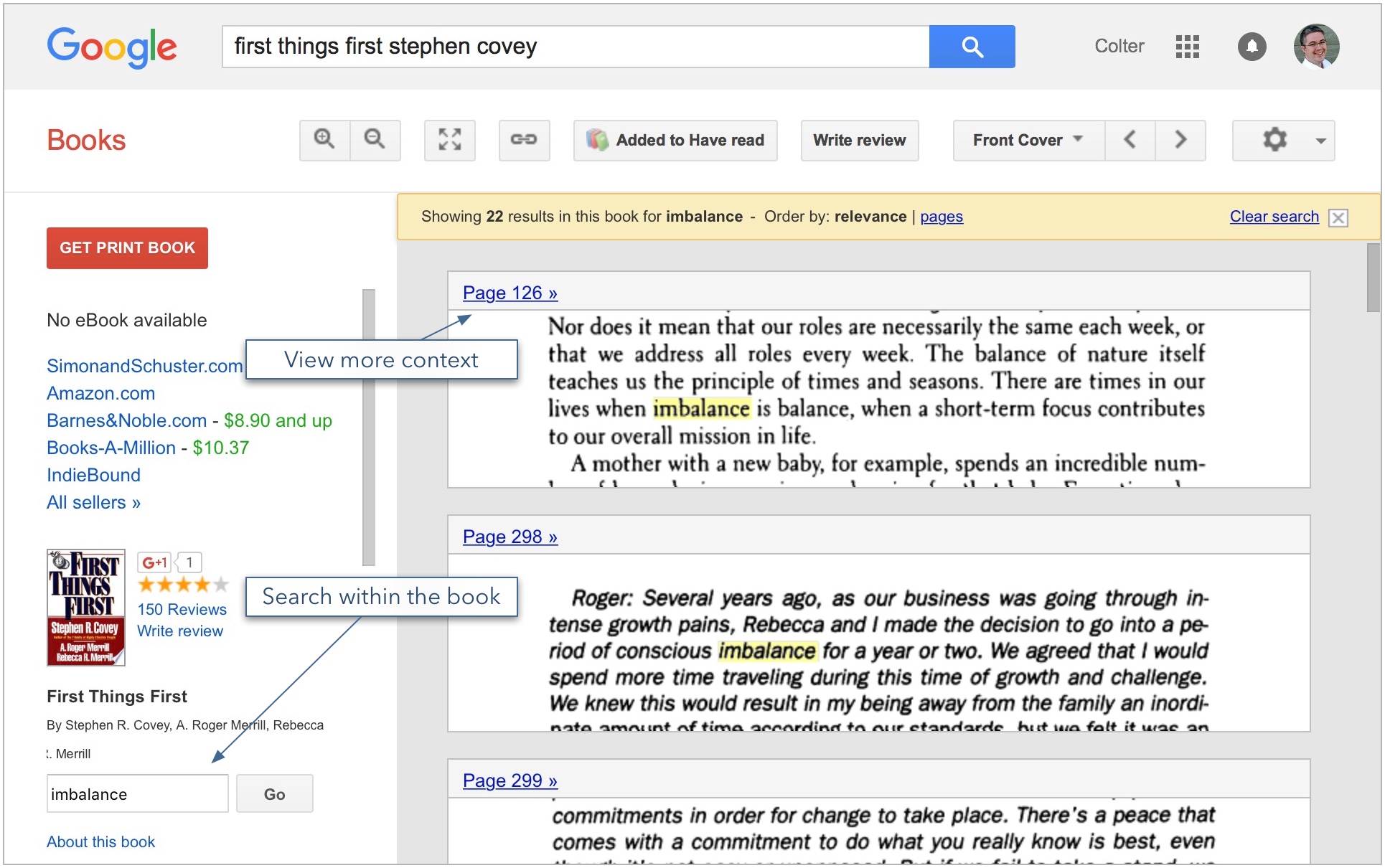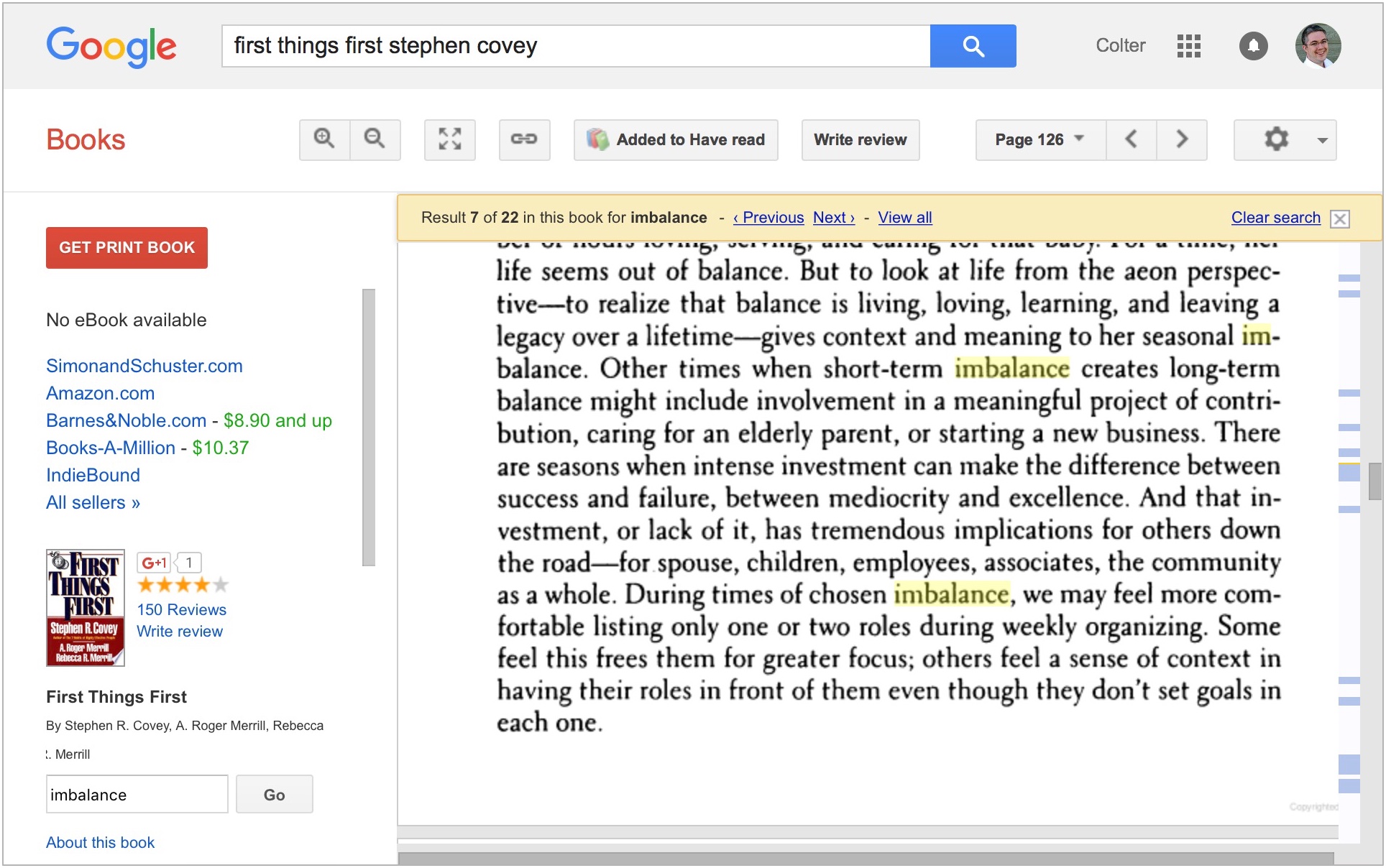Digital books are great. You always have something to read on hand, and you can search them. (Plus, for some reason, I have a hard time bringing myself to mark up a paper book; I think it’s from the days of having to preserve a textbook’s resale value.)
One of the key advantages to digital books is that the information is unlocked. If you can remember a key phrase or even just a word, you can find the passage you’re looking for. Passages you mark are automatically indexed so you can quickly browse through them to find the right excerpt.
What about the information in your paper books? (At least I hope you have paper books.) Fortunately, there’s a way you can quickly and easily search through your paper books, just like your digital books.
Enter Google Books. Google Books is Google’s attempt to index the contents of every book ever printed—130 million by their estimates. You can’t read the entire book (unless it’s in the public domain) but you can usually find what you’re looking for and pick up the research in your own physical copy.
Recently, I wanted to verify a quote from First Things First, co-authored by Stephen R. Covey, A. Roger Merrill, and Rebecca R. Merrill. It’s a fantastic book on time management (and why weekly planning is the best). It hasn’t been published as an ebook yet, so I just have a paper copy.
Here’s how to search a paper book using Google Books:
-
Go to https://books.google.com.
-
Enter the name of the book.
-
When the book preview comes up, there is a search field on the left. It’s kind of buried, and the button just says “Go”. Enter what you’re searching for.
The search is pretty strict, so search for as few words as possible. Try not to use common words like a, an, the, etc. If you want to search for an exact phrase, put it in quotes.
For some books, you can expand a search result to see several pages on either side. Some books are limited to just a few lines of context. It depends on the permission Google was able to get from the publisher.
In my experience, the page numbers it reports match the pages in my copy of the book. I may just be getting lucky—it probably depends entirely on the pagination of each edition. Hopefully, the search results will at least get you close to the right page if you need to continue the search in your book.
Another tip: make your own entries in the index. I have a book that uses the illustration of slowly turning the heat up on a frog, and it isn’t listed in the index. After finding the anecdote the hard way (more than once), I realized I didn’t have to be limited by the publisher’s index. I could add my own entries that match what I remember and am trying to look up. That index now has an entry under “Frog, Boiling”.
Instead of spending half an hour flipping through the book to find the quote I was looking for, I was able to find it in just a couple of minutes. I was thinking of the phrase “during times of chosen imblance” at the bottom of page 126. Substantitively the same, but I was glad I checked so I could quote properly.
Google Books makes it easy to search the paper books you have, going a long way towards making them as accessible as digital books. Unfortunately, it doesn’t do much to solve the problem of portability.




